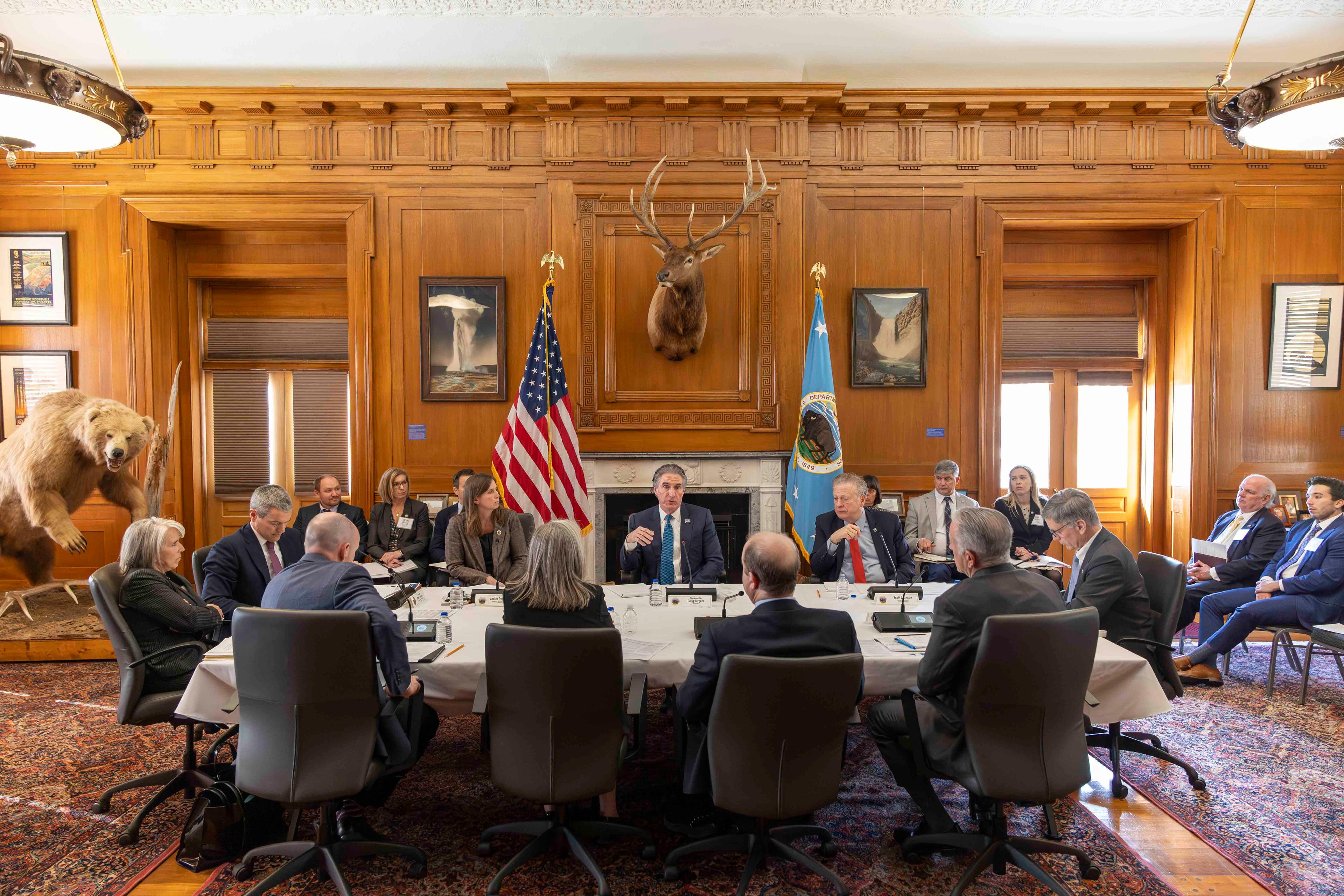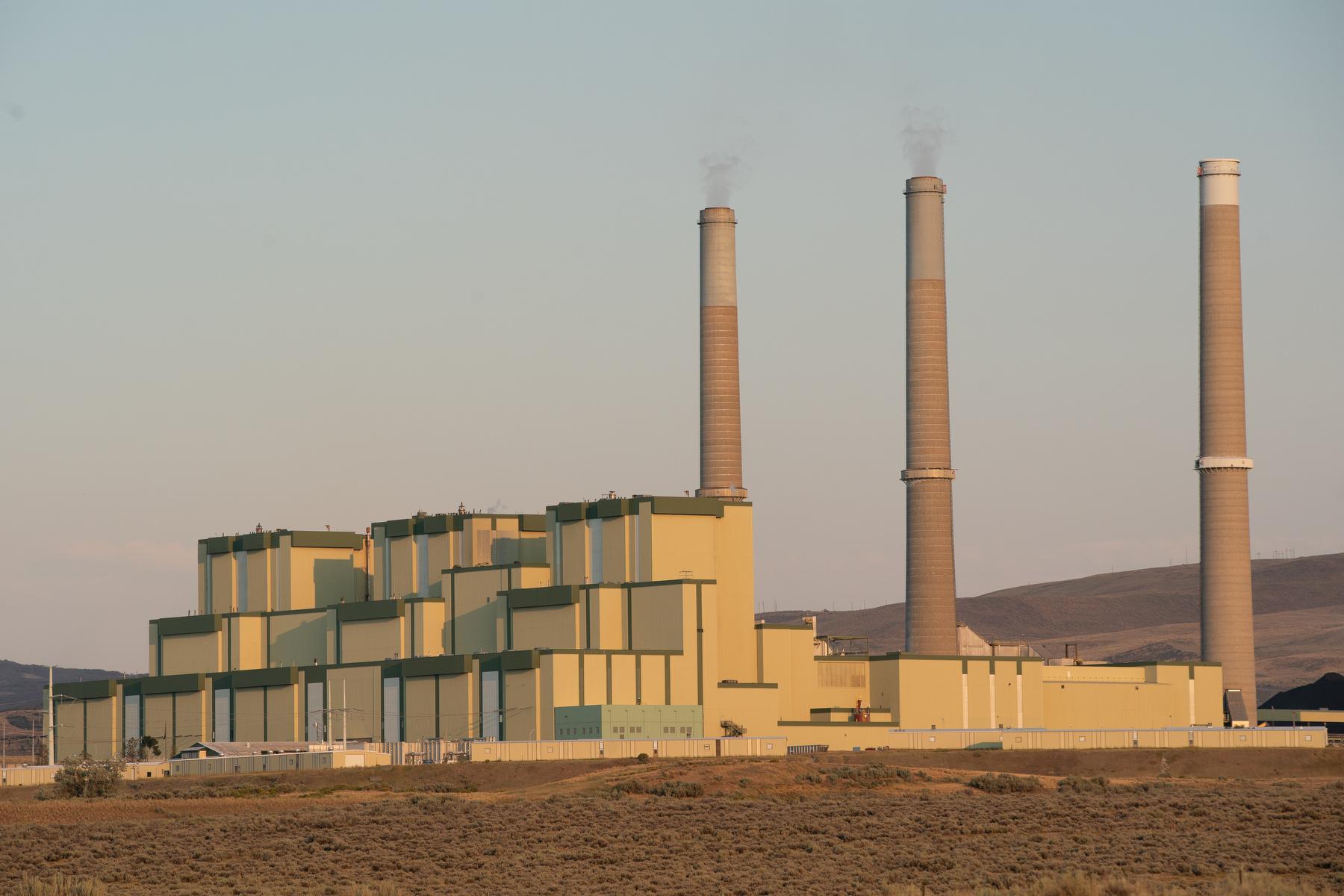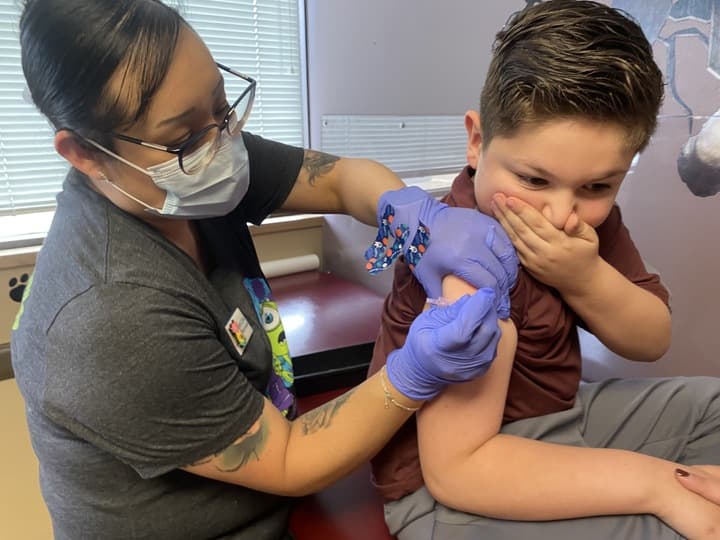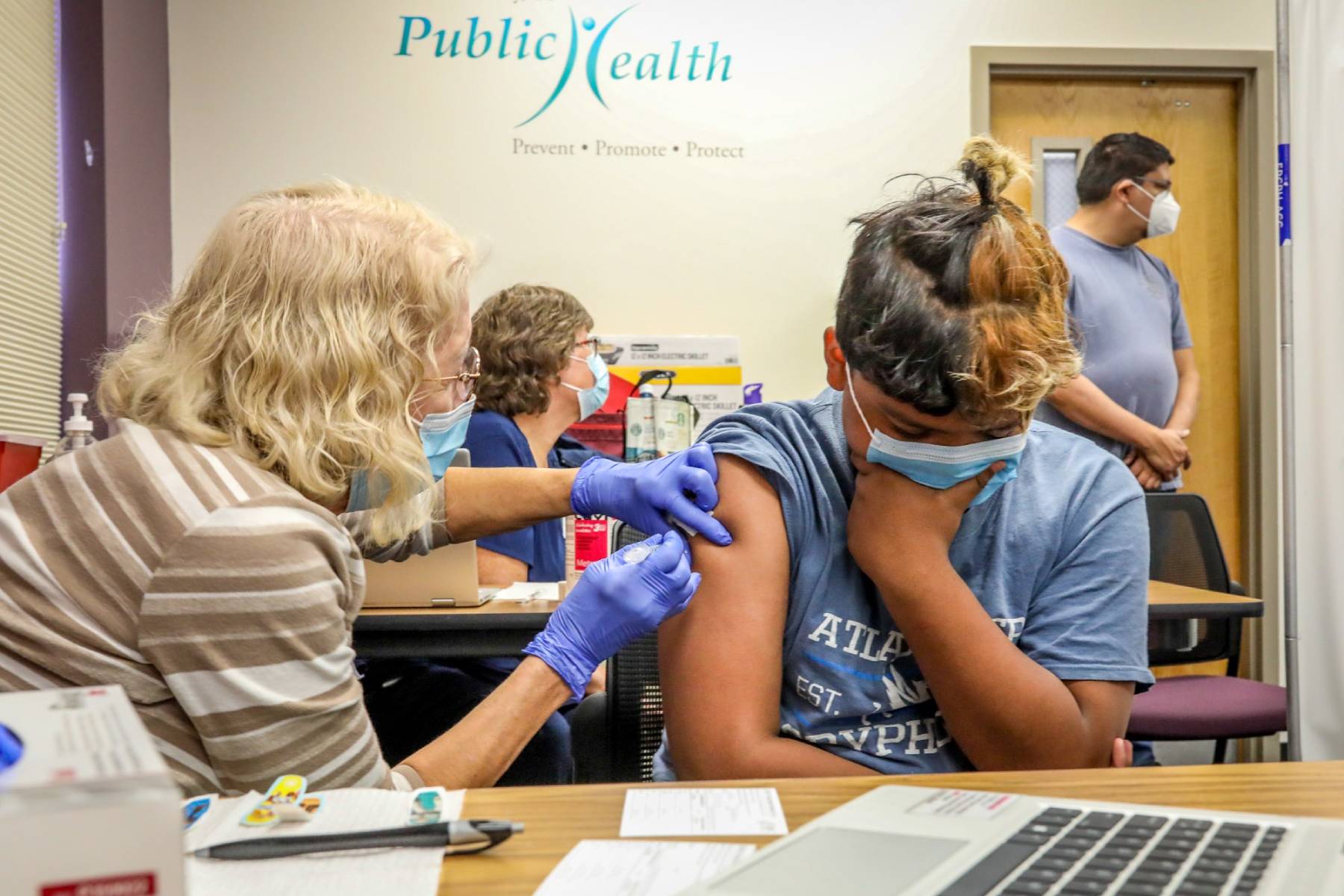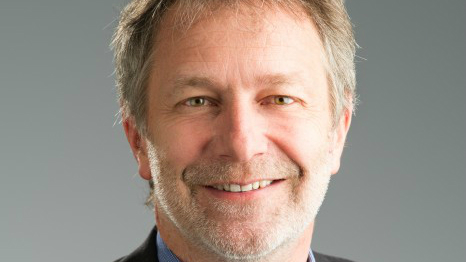
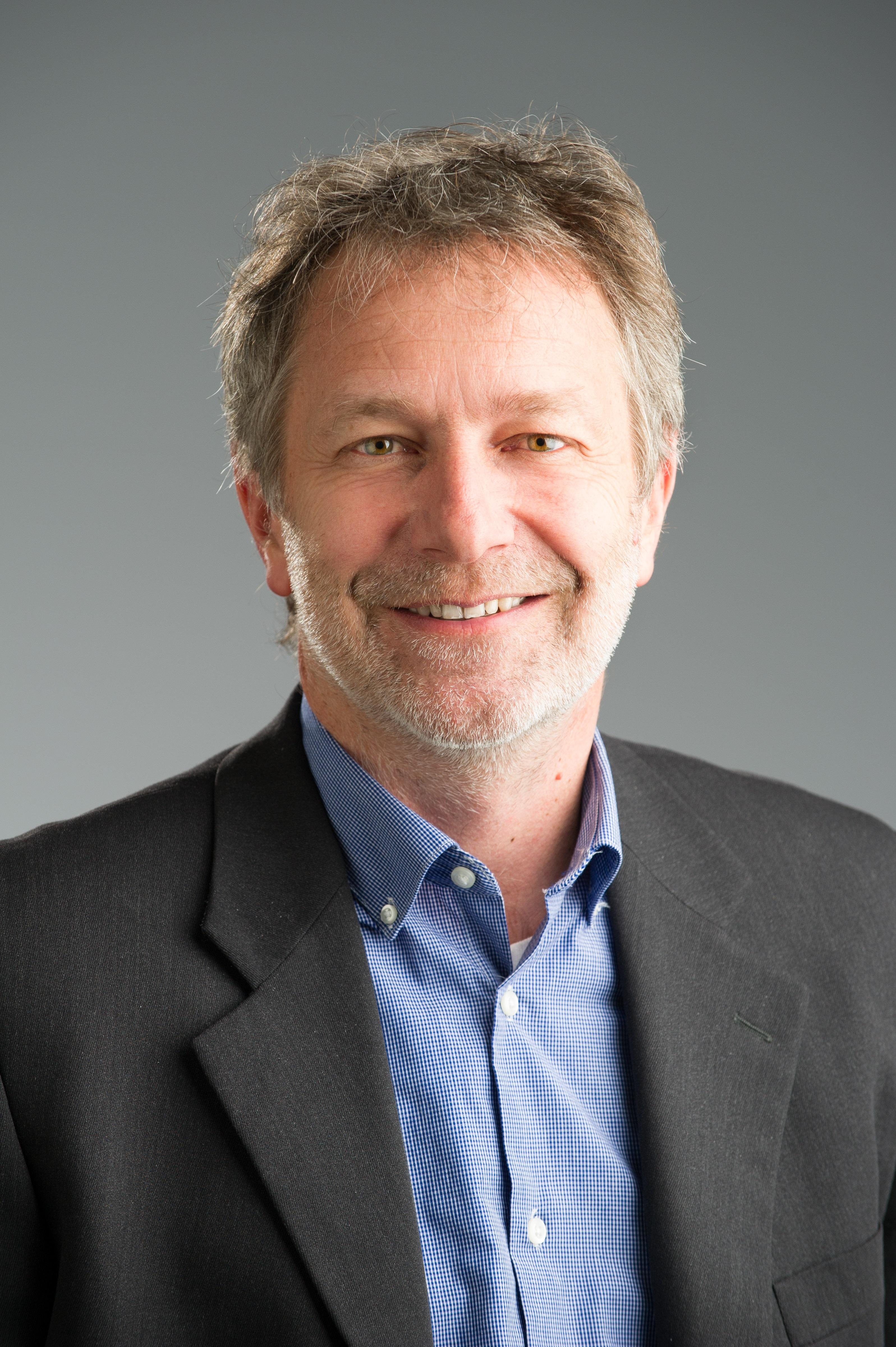
These are tense times at the National Renewable Energy Laboratory in Golden. For 40 years NREL has conducted unique scientific research and worked with industry to make sources such as solar, wind and biofuels increasingly big parts of America's energy supply.
NREL relies on the federal government for more than 80 percent of its funding, and the new administration in Washington D.C. has sent decidedly mixed signals about its support.
President Donald Trump and his nominee for energy secretary have both publicly questioned mainstream thinking about climate science, and then softened their positions. Trump has said he 'loves' solar, and his choice for energy secretary, Rick Perry, backed solar programs when he was governor of Texas. But the administration has also called for sharp cuts in government spending, and his energy plans focus on oil, natural gas, and coal.
That leaves roughly 1,700 NREL employees, and the agency's director, Martin Keller, wondering what's ahead.
Conversation Highlights With NREL Director Martin Keller
On the mood at NREL:
Martin Keller: “I would say it's an interesting mood because there's a lot of uncertainty. So when I talk to our folks who are at NREL for a long time, they say, 'Well, you know, we had these kind of transitions, we have seen, you know, Reagan and Bush,' and so they say it all will work out. But I think this time we don't know where we are going. The new administration talks about all of the above in energy so I think there is room for renewables in there, but we just don't know exactly where it all goes and this causes some uncertainties.”
Ryan Warner: “All of the above is something of a buzz word that means traditional fossil fuels and renewables. So you hear some hope when that term is used by the administration?”
Keller: “Yeah. And when I look really though, energy in the U.S., we are blessed that we can do all of the above and that we have a lot of natural gas, we have oil, we have a lot of renewable resources in our country. So it would be a mistake in my opinion not to go to the all above.”
On job growth in the renewable energy industries:
"When you look at the renewables and the latest job report coming out, it's very clear that we see a huge up trend in jobs created out of clean or advanced energy technologies. On energy efficiency, there's about 2.2 million people working in energy efficiency. When you look at the renewable technology, the job numbers, so let's say last year, they reported a 25 percent increase. They added 73,000 jobs in solar. We added a lot of jobs in wind. So the the increase in jobs is higher than in any other advanced energy technologies, in renewables. So the increase in jobs is higher than in any other advanced energy technologies."
On whether private industry would be willing to pay for the type of research NREL does:
“They pay for the little incremental changes … But if you, for example, change the process, let’s say, in making your wind machines, this is not funded by industry. This is where federal funds, I think, are important. And I always make this comparison, the national labs, the federal funds, should fund research which is not done by industry. They will not take this risk to go down this research path."
Read the transcript:
Ryan Warner: The future of government support for renewable energy is very much in question right now: President Trump is bullish on fossil fuels -- but has also said he 'loves' solar. Both he and his nominee for energy secretary have been skeptical of climate change. The 1,700 or so Coloradans who work at the National Renewable Energy Laboratory, are watching closely. This is the lab's 40th year doing research and helping to commercialize emerging sources of power. Martin Keller is director of the National Renewable Energy Lab -- better known as NREL -- in Golden. Martin, welcome to the program. Martin Keller: Thanks for having me. RW: I want to start with what the mood is at NREL right now. RW: All of the above is something of a buzz word that means traditional fossil fuels and renewables. So you hear some hope when that term is used by the administration? MK: Yeah. And when I look really though, energy in the U.S., we are blessed that we can do all of the above and that we have a lot of natural gas, we have oil, we have a lot of renewable resources in our country. So it would be a mistake in my opinion not to go to the all above. RW: I want to talk a bit about that uncertainty a bit more. So at his confirmation hearing, the new energy secretary nominee, Rick Perry, seemed very positive about renewables. He talked about a fund established when he was governor of Texas that invested in solar technology. He said he supported government's role in research and development and in developing technology for commercial use. Both at the heart of what NREL does. On the other hand, the Heritage Foundation, a conservative think tank that's very influential with the Trump administration, has recommended doing away entirely with the federal office that oversees NREL and perhaps spinning NREL itself out of government to be funded by private companies, universities and non-profits. Is it important that NREL be a government entity? MK: Yes, I think so. If you would take the federal funds out of this, industry by definition is much more short term. I've done this 10 years in my life, I was in industry, that you're driven by bringing products onto to the market — RW: And making profits quickly. MK: And making money. And so you're not in this for long-term, scientific accomplishments. And I think we need to have both. We need to combine the targeted applied research with the foundational research, and I think this requires federal funds to go into a laboratory. RW: Can you give us an exa mple of a product or a technology that is on the market today and grew from NREL? MK: The biggest example there of course is First Solar. They are manufacturing thin-film solar panels, so they're employing thousands of people. All this technology was developed at NREL. RW: Thin-film, explain that. MK: More and more what they're trying to do is on solar panels that you're going into thinner film panels and also then leading at the end the goal is for solar that you have it everywhere. For example, for military people, you would have clothes which have solar panels embedded into our clothes for recharging batteries. RW: The idea that they're not just on roofs. MK: Exactly. So they are like paper. You can fold out, you have, and you've seen this when you go camping already, now more and more you're getting these little devices, these blankets, you can roll out to charge your batteries. So solar will go into a very new phase in my opinion. RW: Are there industrial applications for that? You talked about more personal ones I think. MK: At the moment, most of the solar application in thin-film is going into the industrial applications, where you're putting this type of technology with cadmium telluride onto rooftops. They're having high efficiency, they're very cost competitive to the solar panels produced in China. RW: So President Trump was elected in large part I would say on the hope of job creation. MK: Yeah. RW: If that's the argument, would you tell him keep NREL because we're a job creator? Do you have any evidence that you have created jobs with this technology transfer? MK: When you look at the renewable and the latest job report coming out, it's very clear that we see a huge up trend in jobs created out of clean or advanced energy technologies. On energy efficiency, there's about 2.2 million people working in energy efficiency. When you look at the renewable technology, the job numbers, so let's say last year, they reported twenty-five percent increase. They added 73,000 jobs in solar. We added a lot of jobs in wind. So the the increase in jobs is higher than in any other advanced energy technologies, in renewables. So the increase in jobs is higher than in any other advanced energy technologies. MK: So, you know, there is, there's many researchers and companies working on the case of renewables, but I always say a lot of the technology tracks down to very fundamental science started at NREL. Look at wind. When we had variable wind machines, now this is what GE is using, we're still working with GE on some of the new modeling.On a global scale, renewables will happen. It, nobody will stop this anymore. RW: Nobody will stop this anymore. But isn't that more of an argument for the private sector to take up the research? That is to say, if the private sector deems that that fundamental scientific research is important, they'll pay for it. MK: Yes and no. They pay for the little incremental changes and this is what I said, when you come in and you're working with companies to improve the current product, this is where I can see, and we're seeing where companies come into NREL and we're working very close with them to make the product a little bit better. But if you, for example, change the process, let's say, in making your wind machines, this is not funded by industry. This is where federal funds, I think, are important. And I always make this comparison, the national labs, the federal funds, should fund research which is not done by industry. They will not take this risk to go down this research path. RW: Is NREL able to hire right now? If you have a job opening, can you fill it? Do you have the permission to do so? Can you add new jobs right now? MK: We can add new jobs and we can fill the positions, yes. RW: Okay, no changes there. MK: No changes there. RW: Thus far. What communication, if any, have you had with the administration? MK: We had, all the lab directors met, are meeting on a regular basis. We also met with the transition team so they ask us about our opinion in certain areas and we gave them information about the labs and the importance of the laboratories. We had good discussions with them. Of course, the transition team moved out, now the so-called beachhead team is in. MK: So that's what they call the beachhead team. It's the team going, you know, and making the contact from the Department of Energy back to the White House. RW: What's the relationship with Senators Bennet and Gardner? Because they may be key in this, as well. MK: So we have a lot of discussion with Senator Cory Gardner. You have seen this also in the past that he's very passionate about NREL and he also talks about wind. He is following us very closely and I have to say he — I like to discuss and talk to him because he is very passionate about, I would call, the all of the above. So and you know this is reflecting Colorado. As you know, we're having a lot of resources on gas and oil, but you also have a lot of resources in wind and solar. RW: And Senator Bennet? MK: Senator Bennet is always focusing on education, so, but we also have a lot of contacts with him, because he's also very passionate about what I call the Front Range and the whole science and education aspect of our resources here in Colorado. And I have to say, in my opinion, we have world-renowned scientific facilities in our state. RW: Do you feel like you're singing for your supper right now? MK: No. I would phrase it differently. I feel NREL can do so much more. I think we need to show the country and we have a lot of this evidence that now the technology is mature enough that renewables will expand into different areas. And we just need to position NREL differently. When we started, I always say this, there was a couple of the scientists on the foothills and everybody thought, oh, they are crazy, what are they doing? This will have never relevance. Now, see what happened. It completely changed the way we're talking about energy generation. So now the next thing is, how can you take all these different technologies and apply this across the U.S., not only for electricity generation, how can you take this technology broadly across the whole U.S. for many different applications? RW: Martin Keller, why don't you leave us with the research or development you're most excited about at NREL right now? MK: Oh, there's a lot of things I'm very excited about. And one is, how can we change wind machines and make them even more cost competitive, so driving the cost down. RW: Are they pretty expensive? MK: So there is already in many areas, they are the cheapest way of creating electricity. And so there's studies out there by 2030, the cost will come down by another thirty percent and this will be done through new, advanced manufacturing methods. This is one of the examples where federal research,together with industry, can make step functions. RW: So what do you change in a windmill to make it cheaper? MK: You will go higher up. RW: Higher up? MK: So, as you know, when you look at the wind map in the U.S., there's certain areas where, especially in the south, where it's a lot of wind, it's abundant, but it's high up. So you need to go above about 120 to 140 meter hub height, it's called, so you're building very large machines. And by doing so, the question is, so why are we not doing this right now? And look, it's very simple, because we don't know how to transport these blades. So the blades are getting too long. So you might have seen some of the blades running down our highways. They're huge. So now let's say you're adding another thirty, forty meters, they do not fit under any bridges, tunnels, so we need new processes to make them. And this, this is really exciting. RW: Thanks for being with us. MK: Thank you so much. |

